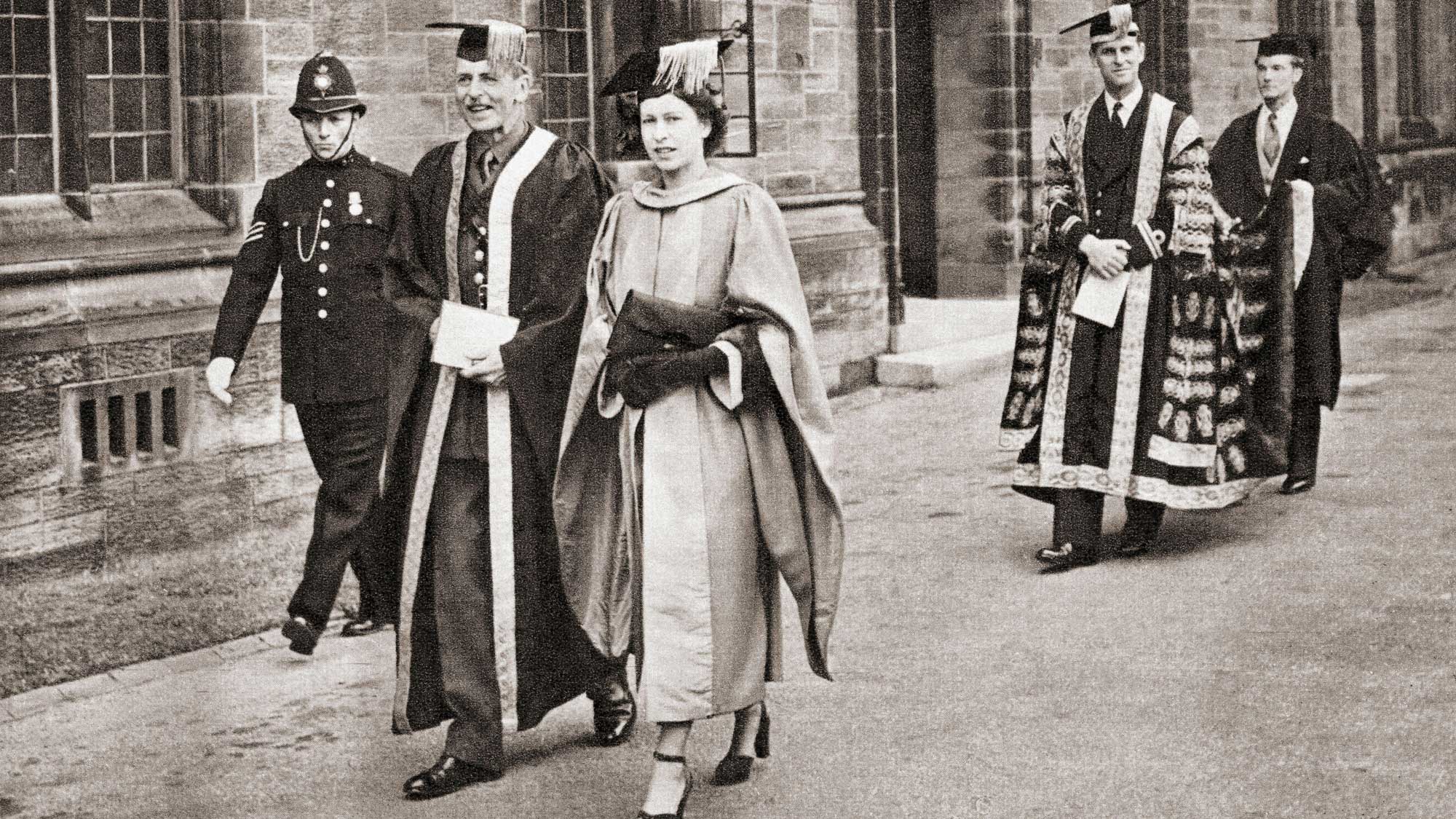With the rest of the higher education sector, with the country, and with the world, we were saddened to learn of the death of Her Majesty Queen Elizabeth the Second.
She passed away after a lifetime of dedicated public service, aged nearly 97, at her residence at Balmoral. Our thoughts are with her family.
On her ascension to the throne in 1952, the UK had just 18 universities – she presided as head of state over a period where a UK university education went from a rarity to a meaningful aspiration for anyone in the world. In that year, she bestowed via the Privy Council a Royal Charter on the University of Southampton, the first of many to follow.
The next, in 1953, was a provider named for her: Queen Elizabeth College, originally known as the Ladies’ Department of King’s College London and now once again part of King’s.
The Queen never had the chance to attend university herself. Like many in her generation, she encouraged her children and grandchildren to benefit from higher education, and her eldest, Charles, became the first royal to hold a degree attained in the conventional way – attending Trinity College, Cambridge, where he achieved a 2:2 in archaeology and anthropology. All four of her children are or have been university chancellors.
She had a strong appreciation for scholarship – and is widely quoted as saying early in her life:
“It’s all to do with the training: you can do a lot if you’re properly trained”
She was a Fellow of the Royal Society and held honorary degrees from the universities of London, Oxford, Wales, and Edinburgh. The image above is of Princess Elizabeth – as she then was – and Prince Philip in academic attire at the University College of North Wales (now Bangor University) in 1949. Philip became chancellor of the University of Wales that day, and bestowed an honorary doctorate in music on his wife of two years. She also had a formal role in national university life – she was the official visitor to 14 providers and four Oxford colleges, acting as ombuds for staff and (until the establishment of the Office for the Independent Adjudicator by the 2004 Higher Education Act) student complaints via the Privy Council.
As Head of State – and as patron of the Association of Commonwealth Universities – she keenly felt a responsibility to represent the UK (and its universities) overseas. She was keen to promote the value of government scholarships for international students and to promote international collaboration. At the 2011 US State Banquet, she noted:
“We have been able to act together in fields as varied as science, research and higher education to find solutions or to at least make progress towards tackling so many of the social and economic difficulties that confront nations in all parts of the globe.
The Queen’s sense of public duty, and her status in representing a sometimes-troubled institution with a long history, offers a lot for universities to learn from. Deeply involved in public life while remaining outside of day-to-day politics, often having to put an approachable and sympathetic face to difficult situations, and a passionate charitable campaigner determined to lift up every part of the nation, the death of the Queen comes at troubled a time where those skills are needed more than ever.
If the higher education sector can perform even a tiny proportion of this national civic role in the difficult winter ahead and take forward her example in future years, it will be honouring the support she has shown in the best possible way.


